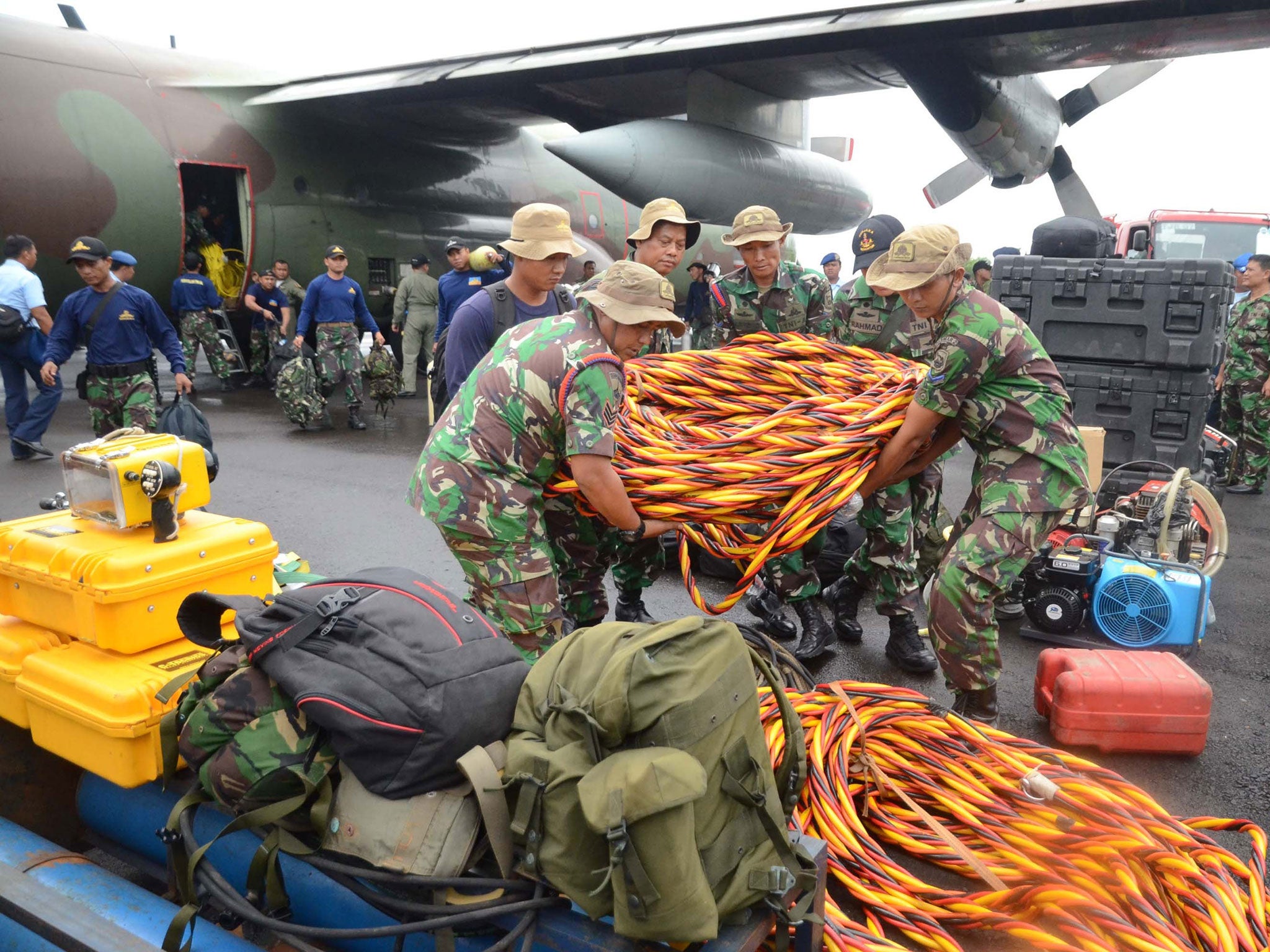AirAsia flight QZ8501: Experts claim pilot may have landed plane intact in the sea as search for black boxes continues
Aviation experts have said they believe that the flight may have been landed in the sea before being overcome by rough seas

The captain of the ill-fated AirAsia flight QZ8501 may have successfully landed the plane in the Java Sea before it was wrecked, according to aviation experts.
It is believed the former military pilot Captain Iriyanto may have landed the aircraft intact in the sea, after attempting to fly through the storm.
“The emergency locator transmitter (ELT) would work on impact, be that land, sea or the sides of a mountain, and my analysis is it didn’t work because there was no major impact during landing,” Dudi Sudibyo, an editor at the Indonesian aviation magazine, Angkasa, told AFP.
“The pilot managed to land it on the sea’s surface,” he added.
The black boxes from the plane, which will help experts piece together the final moments of the flight, have yet to be located and poor weather is hampering the search.
A French team have now arrived at the search area with specialist equipment to conduct an underwater search for the recording devices.
While bad weather has been disrupting efforts to locate the missing plane, it is anticipated that the search will prove less challenging than the attempts to find the Air France plane, which went missing in deep water in the Atlantic in 2009.
The wreckage of the AirAsia plane is thought to be located at the relatively shallow depth of 50 metres.
Discovering the black boxes should be straightforward, as long as the beacons, which transmit to a range of 2,000 to 3,000 metres, are still working.
Commercial aircraft carry two black boxes to record flight data and cockpit recordings.
The beacons, or “pingers”, are designed to emit signals for up to 30 days, but in practice most continue to function for up to 40 days.
The BEA crash investigation agency, which dispatched the search team, said that their ship carries two hydrophones that can listen underwater. French, Singaporean and Indonesia experts are on board to assist with recovery efforts.
Since leading the two year search for the Air France plane, the BEA is considered a specialist in underwater searches. It also assists investigating crashes of Airbus planes, as the company is based in France.
Additional reporting Reuters
Join our commenting forum
Join thought-provoking conversations, follow other Independent readers and see their replies
Comments
Bookmark popover
Removed from bookmarks